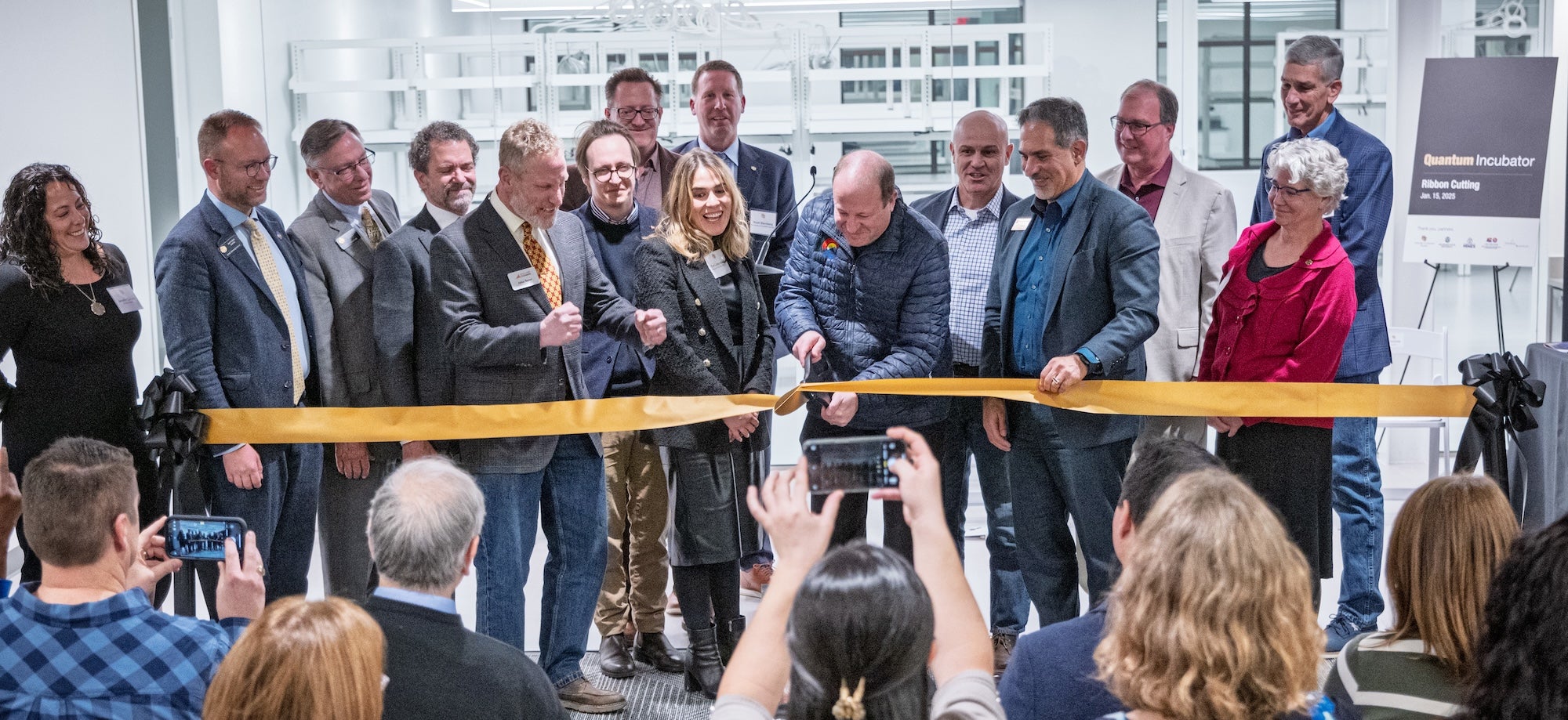Education
Colorado Launches Major Study to Build Quantum Workforce

A significant initiative has emerged in Colorado aimed at developing the workforce needed for the expanding quantum technology sector. The study, backed by institutions including CU Boulder and the Rochester Institute of Technology, commenced in 2024 with funding from the U.S. National Science Foundation and the Laboratory for Physical Science Qubit Collaboratory. This comprehensive research project seeks to determine how educational institutions can better prepare students for careers in this fast-evolving industry.
As quantum technology companies proliferate across the United States, they are developing innovative applications that leverage the unique properties of atoms and electrons. These advancements include potential breakthroughs in areas such as quantum computing, which may lead to the discovery of new medications, as well as advanced sensors capable of detecting illnesses through a single breath. Yet, physicist Heather Lewandowski, a lead researcher on the project, emphasizes the need for educational reforms to match industry demands.
“Quantum is big, both in Colorado and throughout the nation,” said Lewandowski, a fellow at JILA, a collaborative research institute affiliated with CU Boulder and the National Institute of Standards and Technology (NIST). “Universities are starting new courses, new degrees, new minors, and they need data. They need to understand the types of knowledge, skills, and abilities students need to be successful in the quantum workforce.”
The urgency of this project is underscored by the recent recognition of Elevate Quantum as an official technology hub by the U.S. Economic Development Administration in 2023. This coalition encompasses 120 organizations in the Mountain West region, with CU Boulder playing a central role. Currently, the quantum industry supports approximately 3,000 jobs in Colorado, with projections suggesting this number could increase to 10,000 jobs over the next decade.
To address the educational needs of this burgeoning field, Lewandowski and her team are systematically examining course offerings at over 1,400 degree-granting institutions across the United States. Additionally, they plan to interview 200 professionals from quantum companies both locally and nationwide. Preliminary findings have already been shared in a series of studies published online.
“Questions about workforce development and education planning are complicated because how do you plan for what’s going to happen in this industry in five years?” remarked Shams El-Adawy, a postdoctoral research associate involved in the study.
The researchers recognize that quantum technologies are not entirely new. Many everyday devices, such as grocery store laser scanners and computer transistors, rely on principles from quantum physics. The current surge in quantum companies, however, is driven by advanced technologies utilizing quantum properties such as entanglement and superposition. These phenomena enable unprecedented measurement capabilities, which have profound implications across various fields, from medical diagnostics to fundamental physics.
With a focus on how universities are adapting to this uncharted territory, the research team has created an interactive map detailing quantum information science programs throughout the country. This resource includes information on available degrees, minors, and concentrations at higher education institutions. For instance, Colorado boasts six universities offering courses in quantum information science, with CU Boulder alone providing 13 courses in the discipline.
While many current offerings are primarily for graduate students, undergraduate programs are expanding. El-Adawy highlighted that numerous institutions are integrating quantum topics into existing courses across different disciplines. “A lot of disciplines are sprinkling some of these topics in quantum information science into courses that are not fully dedicated to quantum information science,” she noted.
To further bridge the gap between academia and industry, the researchers have already engaged with more than 40 representatives from quantum technology firms across the United States. They invite business leaders, scientists, and engineers to participate in shaping the workforce of the future.
From their discussions, a clear trend has emerged: companies are eager to hire graduates equipped with hands-on experience in quantum technologies. This includes skills ranging from writing complex algorithms for quantum computers to operating specialized lasers in engineering labs.
In line with these developments, CU Boulder introduced the Quantum Scholars Program in 2023, which connects undergraduate students to local quantum companies, providing insights into potential career paths in the field.
“Our goal is to return to the higher education community and say, ‘What do we do with this knowledge? How do we build it into learning goals for classes and programs?’” Lewandowski concluded, highlighting the commitment to integrating research findings into educational practices and workforce training.
As this study unfolds, it promises to play a critical role in shaping the future of quantum workforce development in the United States, ensuring that educational institutions are aligned with the evolving needs of the industry.
-

 Science1 month ago
Science1 month agoNostradamus’ 2026 Predictions: Star Death and Dark Events Loom
-

 Technology2 months ago
Technology2 months agoOpenAI to Implement Age Verification for ChatGPT by December 2025
-

 Technology7 months ago
Technology7 months agoDiscover the Top 10 Calorie Counting Apps of 2025
-

 Health5 months ago
Health5 months agoBella Hadid Shares Health Update After Treatment for Lyme Disease
-

 Health5 months ago
Health5 months agoAnalysts Project Stronger Growth for Apple’s iPhone 17 Lineup
-

 Technology5 months ago
Technology5 months agoElectric Moto Influencer Surronster Arrested in Tijuana
-

 Education5 months ago
Education5 months agoHarvard Secures Court Victory Over Federal Funding Cuts
-

 Science2 months ago
Science2 months agoBreakthroughs and Challenges Await Science in 2026
-

 Health5 months ago
Health5 months agoErin Bates Shares Recovery Update Following Sepsis Complications
-

 Technology7 months ago
Technology7 months agoMeta Initiates $60B AI Data Center Expansion, Starting in Ohio
-

 Technology6 months ago
Technology6 months agoDiscover How to Reverse Image Search Using ChatGPT Effortlessly
-

 Science4 months ago
Science4 months agoStarship V3 Set for 2026 Launch After Successful Final Test of Version 2





















